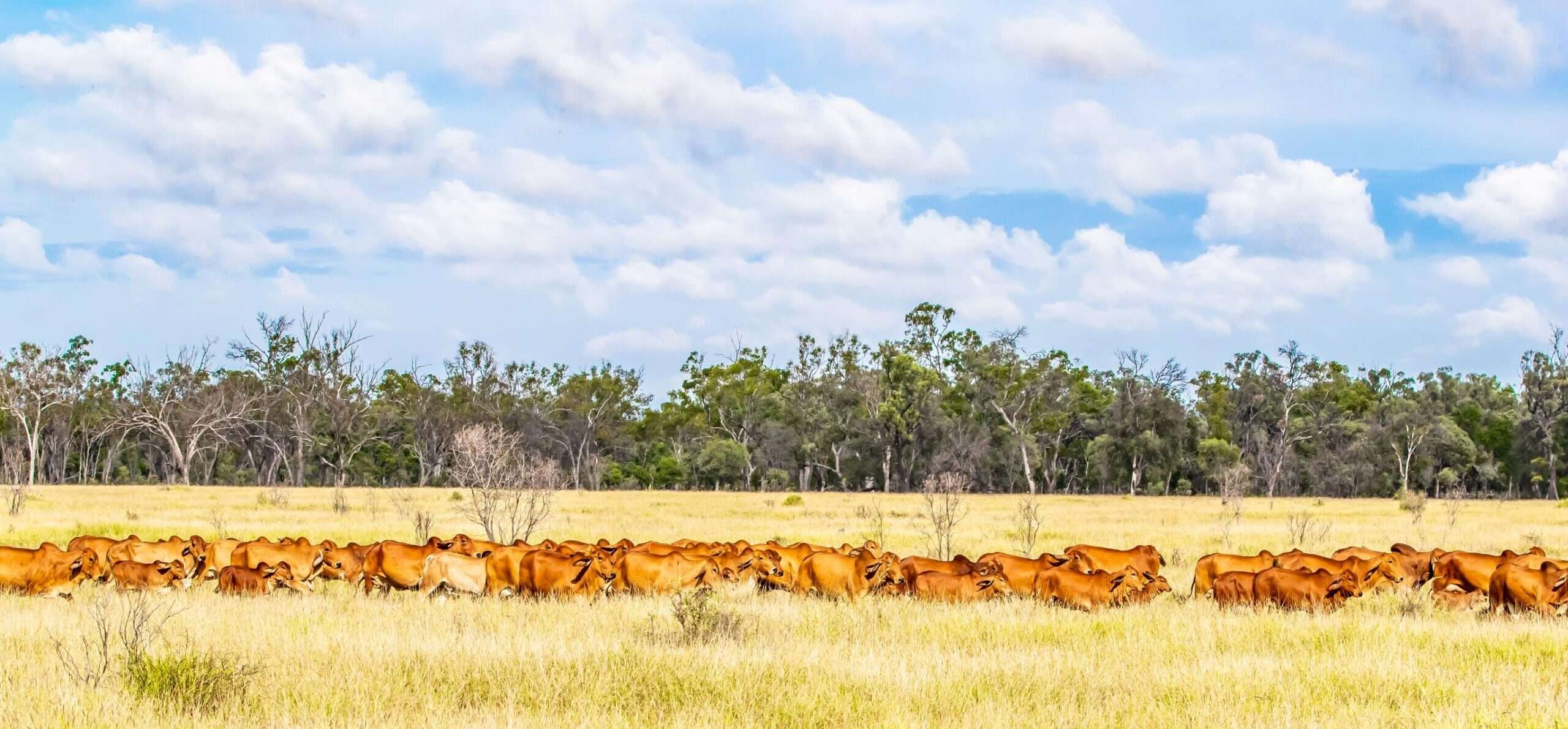FROM NORTHERN MUSTER ISSUE 20
BRAHMAN NEWS MARCH 2009 Issue #162
This project, also known as the Epigenetics Project, lead by the DPI&F, studies the deviation from traditional Mendelian inheritance patterns in beef cattle.
This deviation can result from the expression of a gene being dependent upon whether it was inherited from the male versus the female parent (imprinting). It could also result from certain environmental conditions leading to permanent changes in gene expression.
Epigenetic inheritance can have significant effects on growth, behaviour and health traits. The susceptibility of epigenetic inheritance to environmental effects can compromise conventional quantitative trait loci (QTL) utilisation strategies.
Therefore, these epigenetic interactions add as yet unaccounted for variation into beef cattle production systems. This results in breeding and production inefficiencies, especially in the predominant tropical breeds in Queensland.
This deviation from the conventional genetic model has been highlighted in a number of studies worldwide. To date there has been no concerted effort to understand the mechanisms for these interactions that impact significantly on tropical beef breeds and production outcomes. Similarly, strategies for producers to manage these influences within breeding programs have yet to be developed. The understanding and application of this proposed cutting-edge internationally collaborative research has the potential to greatly enhance permanent genetic gain in Queensland’s tropical beef cattle breeds.
CENTRAL HYPOTHESIS OF PROJECT
Our central hypothesis for this project is that many traits of economic importance in beef cattle
- appear to be affected by genes with imprinted or other epigenetic effects, and
- lack of identification of these genetic mechanisms will sustain unrecognisable variation and production system inefficiency.
Therefore, unique Australian & USA resources and expertise are being combined to –
- Better understand the biology associated with epigenetic influences affecting reproduction, growth, carcass and adaptation traits of Bos indicus-Bos taurus crossbred cattle;
- Specifically investigate all aspects of growth from pre-natal and early post-natal development to feeding-finishing systems and to integrate these influences on cow reproduction, productivity, mature size and longevity; and
- Formulate strategies for producers to manage these epigenetic influences within beef cattle breeding programs to increase precision and reduce variation in these key production traits and end-product quality, resulting in increased efficiency and ultimately, increased profitability.
SPECIFIC RESEARCH AND COLLABORATIVE ACTIVITIES
(i) Prenatal characterisation of growth and development in Bos indicus and Bos taurus cattle
This component of the project is being lead by Prof. Stefan Hiendleder, University of Adelaide. This project will evaluate placental and embryo-foetal development and birthweight/calf size among reciprocal cross F1 Brahman x Angus beef cattle.
(ii) Postnatal characterisation of growth, reproduction, behaviour and carcass traits in Bos indicus x Bos taurus resource cattle herds
This component of the project is being lead by Assoc. Prof. Andy Herring, Department of Animal Science, Texas A&M University (TAMU). This component will conduct quantitative trait loci (QTL) scans (reproduction, growth, basic industry carcass traits and behaviour) in the TAMU McGregor Genomics Project Herd (Reciprocal F2 Nellore (N) x Angus (A) Resource Herd) – birth to slaughter in males and birth to ~10years of age in females.
(iii) Industry purchased Brahman heifers
This component of the project is being lead by Dr. Brian Burns, Animal Science, Delivery, DPI&F in conjunction with Prof. Stefan Hiendleder, University of Adelaide.
Approximately 22 industry Brahman heifers, located at the DPI&F’s Brigalow Research Station, Theodore are presently being artificially inseminated to either a –
- Breed average Angus GROUP BREEDPLAN 600 day growth EBV sire, or a
- Breed average Brahman GROUP BREEDPLAN 600 day growth EBV sire.
These dams and progeny will be used in sensitive gene identification and expression studies.
(iv) Evaluation of gene markers for growth, carcass, temperament and cow fertility with associated epigenetic effects in a tropical environment
This component of the project is being led by DPI&F and is being conducted at the Lisgar Droughtmaster Stud (Robert and Donna Rea), Home Hill, Queensland. The day-to-day collection of data from this herd is being managed by Alan Laing, DPI&F, Ayr. This GROUP BREEDPLAN Droughtmaster Herd will be used as a benchmark and validation herd to better understand the mechanisms for these epigenetic interactions that impact significantly on tropical beef breeds and production outcomes.
WHAT WILL BE DELIVERED?
- A better understanding of the genetic potential of individuals; and
- Strategies for producers to manage these epigenetic influences within breeding programs.
These outputs will allow beef producers to increase precision and reduce variation in key production (reproduction, growth and carcass), adaptation (cattle tick and gastro-intestinal worm resistance) and temperament traits and end-product meat quality, resulting in increased efficiency and ultimately, increased profitability. This is especially important as branded beef food products continue to increase in demand.
This project is strongly supported by the Droughtmaster Stud Breeders Society.

